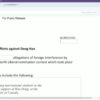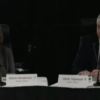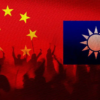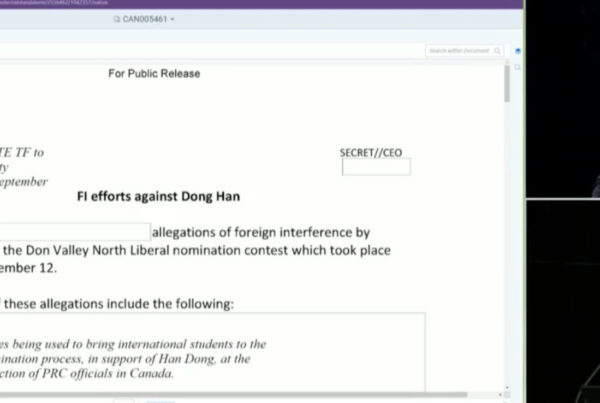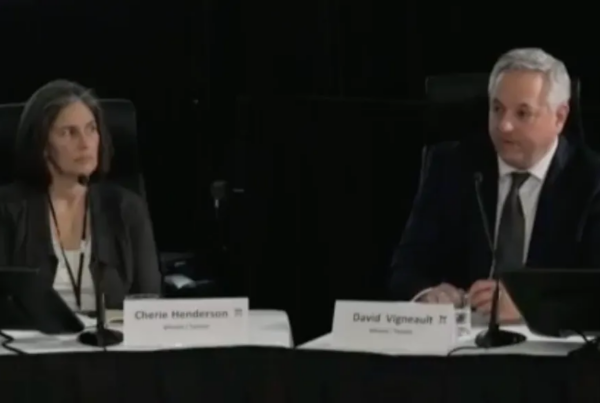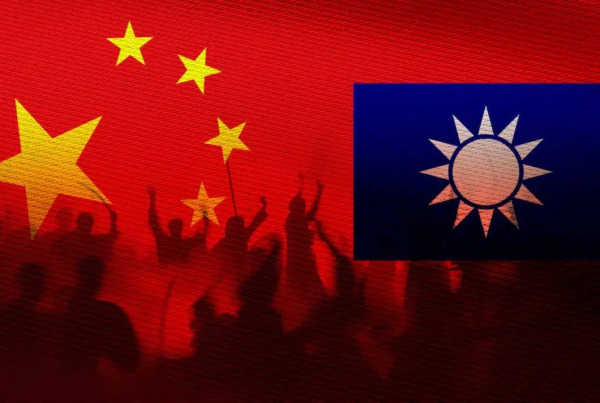The media has undoubtedly provided terrorists with a mode to relay their message to massive amounts of people. Scholars like Brigitte Nacos believe the media is indispensible to terrorists.[1] In her book Mass Mediated Terrorism: The Central Role of the Media in Terrorism and Counter Terrorism, Nacos explains how terrorists exploit global information networks to proliferate their violent achievements, known as the “propaganda of the deed.”[2] Nacos’s explanation describes modern media as being indispensible to the goals of terrorists. Furthermore, it is undoubtedly the goal of terrorist organizations to use media outlets for publicity and to incite fear among the masses. According to Michelle Slone in her article Responses to Media Coverage of Terrorism, it has long been recognized that political circumstances have a significant impact on the emotional status of the general public.[3] Slone also concludes that regardless of gender or religion, images of political violence incite anxiety and fear in television viewers.[4] Moreover, Slone suggests that there is a proven correlation between media content related to terrorism and the anxiety of viewers.[5] It is this anxiety that terrorists groups desire, as it increases public awareness of their cause.
Modern media outlets are abundant; it is advantageous to narrow the focus of terror publicity to news media. According to John David Viera’s article Terrorism at the BBC: The IRA on British Television, the end of the 1960s saw an increasing number of terrorist groups gaining media exposure as a result of reports made about their violence and destruction.[6] It did not take long for terrorist groups like the IRA to realize that news media could be utilized to spread their message to the masses while simultaneously instilling fear in viewers. Viera suggests that the IRA increased involvement in Britain during this heightened period of media coverage saying:
“In 1973, British authorities recorded 86 terrorist incidents, resulting in one death and 380 injuries. In 1974, casualties escalated to 45 deaths caused by political violence, including 21 people who died as the result of the bombing of two crowded pubs in Birmingham.”[7]
Moreover, the IRA increased the intensity of its operations in Britain following its arrival on the news media stage. During this time it was becoming apparent to other groups such as the Red Army Faction, United Red Army, Red Brigades, and the Palestine Liberation Organization that news media was undoubtedly the most effective way of spreading knowledge and awareness of violent acts of terrorism to the masses.[8] This distinctive change in global terrorist tactics resulted in a series of strategic changes by Western governments to address the threat.
Margaret Thatcher prominently sought to silence terror groups from news media. Thatcher’s role in combating this manipulation of media resources is highly recognized by scholars interested in media and government censorship. According to Viera, anti-terrorist legislation was passed following the IRA surge in the UK in, “temporary provisions Act 1974,” which banned public displays of support for the IRA and simultaneously increased police powers.[9] This legislation affected both the freedoms of the people and news coverage that had been threatened by the government on several occasions for violating anti-terrorist legislation.[10] In his article Quelling the “oxygen of publicity”: British Broadcasting and “the troubles” during the Thatcher Years, Gary Edgerton points out that the open interpretation of anti-terrorism legislation during the Thatcher years made it possible to target the media without blatantly infringing on the rights and freedoms of citizens.[11] Edgerton’s posits that Thatcher’s anti-terrorism legislation seeks to eliminate anything that “…appears to be involved in or [is] encouraging terrorism.”[12]The open nature of this legislation made it quite versatile in its application to media. Thatcher’s anti-terrorist provisions made it difficult for terrorists to use the media to garner publicity and, therefore, promote acts of terror.
Currently, the majority of world governments do possess the ability to censor media in the name of anti-terrorism.[13] According to Eric Nuzum in his article Crash Into Me, Baby: Americas Implicit Music Censorship Since 11 September, soon after the September 11th terrorist attacks in New York City, the United States government implemented controversial policy aimed at securing intelligence from American citizens.[14] As the result of this controversial anti-terrorist legislation, constitutional freedoms of citizens were sacrificed in the name of security. Specifically, citizen’s fundamental freedom of speech, freedom of expression, and freedom of the media.
The security network that developed following the September 11th 2001 attacks on New York City were similar to the anti-terrorist legislation that Thatcher implemented, targeting media outlets by governments to limit the opportunities for the publicity of terrorist organizations. In both cases the government was able to use anti-terror legislation to impose limitations where necessary, making any form of terrorism related activity unpatriotic.[15] In the United States, the USA PATRIOT Act is used in this way, and contains provisions to limit media output. Specifically, these provisions create a legally binding censorship order known as a gag order, which legally silences individuals who possess knowledge or information related to international terrorism or clandestine intelligence activities.[16] In fact, it prevents recipients of the order from disclosing that the order was ever received.[17] Gag orders have been used against the media on several occasions. According to the Reporters Committee for Freedom of the Press, “The Supreme Court repeatedly has made clear that the courts may rarely, if ever, prevent the press from reporting on court proceedings and documents…such a gag order is a ‘most extraordinary remedy’ that may be used only in ‘exceptional cases’ where ‘the evil that would result from the reportage is both great and certain and cannot be mitigated by less intrusive measures.’”[18] Moreover, gag orders are an employable strategy in the United States as a means of censoring media in instances where national security is perceived to be in danger.
In the United Kingdom, similar tactics are used by government on media outlets to ensure national security. “Defense Advisory Notices” (DA-notices) are used in a similar way to gag orders to prevent sensitive information from being disclosed to the public that would compromise UK military and intelligence operations, put the safety of those involved in operations at risk, damage critical national infrastructure, and potentially endanger lives.[19] Based on this response, it has become clear that in times of global unrest and increased global terrorism threats, countries are willing to selectively sacrifice civil liberties in order to limit media reports that may provide a publicity platform for terrorist groups.
Ironically, western governments have subsequently propagated the mandate of terrorist organizations by engaging in dialogue about sensitive terrorist matters with media outlets. According to Peter Preston in his article, Getting High on the Oxygen of Publicity, opportunities for terrorist exposure are present now more than ever in the modern digital age.[20] Preston makes reference to George Bush’s re-election campaign where he described John Kerry as, “weak on defense” in television advertisements featuring images of the world trade centre being struck by hijacked planes, and toiling firefighters from September 11th.[21] By employing these images as an election tactic, Bush provided al Qaeda with publicity to millions of American citizens who re-watched the tragic events every time the advertisement was broadcast. Anti-terror legislation has not proven effective in limiting non-deliberate publicity of terrorist propaganda in the west. Preston goes on to say that every time politicians or police open their mouths in public to discuss the issues of global terrorism they are effectively providing the oxygen of publicity that terrorist’s desire. However, it is unreasonable in a western democracy not to discuss terrorism; it is necessary for government officials to use the media as a source for informing the public. However, it is the responsibility of government officials to abstain from fear mongering and mitigate the ability of terror groups to use media bodies to passively endorse their actions.
After the September 11th 2001 attack on New York City, the general public showed increased support the implementation of anti-terrorist legislation.[22] However, it is imperative to note the large collective opposition to the infringement of fundamental freedoms has grown exponentially than it was immediately following 9/11. According to an article by the Global Campaign for Free Expression, The Impact of UK Anti-Terror Laws on Freedom of Expression, the UK Anti-Terror law violates freedom of expression.[23] The Global Campaign for Free Expression outlines the importance of selectivity in the drafting of anti-terror legislation to ensure the laws are in place to protect citizens, while keeping their fundamental rights intact. The Campaign states:
“Anti-terror laws trigger executive powers that are very restrictive on human rights, often with reduced judicial oversight. As a matter of principle, their use should be confined to those circumstances when such severe restrictions can truly be deemed ‘necessary.’ Anti-terror laws should therefore be narrowly drafted and be proportionate to the legitimate aim pursued protecting national security.”[24]
Moreover, public support for less government interference has been expanding in light of the invasive nature of anti-terrorism legislation. What was once viewed as a patriotic compromise is slowly being seen as an untenable infringement on fundamental freedoms.
Media outlets in a free market are constantly in competition for viewership and, therefore, under pressure to be the first to deliver news pieces. Additionally, in order to keep the leading edge, media must provide more entertainment and information than their rival networks.[25] Nacos claims that the competition in reporting on terror groups is what puts news media in powerful positions; there is a tremendous amount of potential revenue and viewership from reporting on terrorist violence that news organizations all want to capture. According to Nacos, the dramatic nature and the public interest of terrorist violence necessitate the media to report on it.[26] Media makes every effort to gain market control because greater publicity for them also means increased revenue.
The relationship between the government and the media is viewed as antagonistic; the media are meant to act as watch dogs for the government rather than as machines for government propaganda.[27] The relationship between the government and the media in western democracies allows media to operate independently from government but within the confines of the law. Margaret Thatcher’s conviction that publicity is the oxygen of terrorism is accurate, as terrorist organisations have sought to spread their message and instil fear in the public through the reach of mass media outlets. Since Thatcher’s administration, the media has expanded its reach by providing exponentially more oxygen for terrorists to take advantage of than in previous decades.[28] Terrorist’s goals have not changed, but their ability to be seen and heard by the masses has.
Although governments attempt to starve terrorists of the oxygen of publicity by using anti-terrorism legislation to censor and limit the output of news media sources, media functions as a business and does not operate in conjunction with the government. Governments can successfully limit news media output to exclude extremely sensitive information, but terrorist organizations will still effectively receive media attention in western democracies as a result of media market competition and fundamental freedoms and civil liberties.

